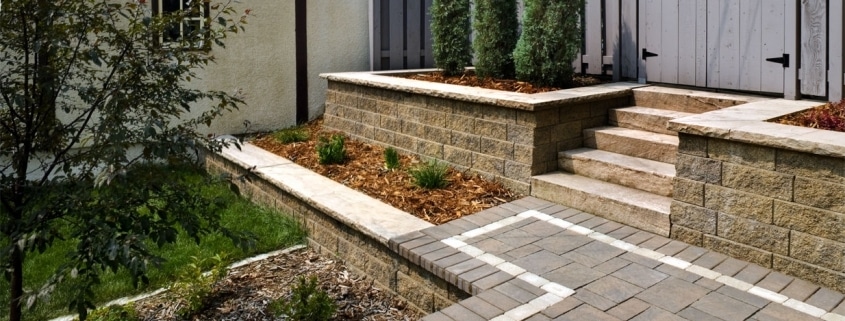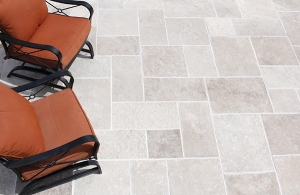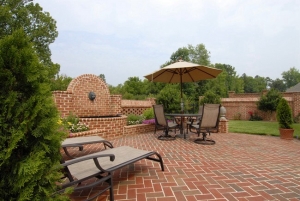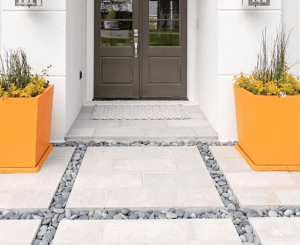Types of Common Patio Pavers
Patio pavers add a beautiful element to any garden, walkway, or patio. Today, there are endless possibilities when it comes to paver colors, sizes, shapes, and materials. By focusing on your unique project and budget, you can determine what selection is best for your natural environment. When selecting what landscape paver is best, consider the following options:
NATURAL STONE PAVERS
Nothing beats the look of authentic quarried natural stone. The most popular natural stone paver options are limestone, sandstone, granite, flagstone, and slate. Limestone, for example, is dependable and strong, a reliable choice for landscape edging. Additionally, travertine stones retain their authentic color well, enduring various types of weather. These rarely need cleaning. Natural stone, however, is not ideal for heavy traffic locations, as they may break under intense pressure depending on thickness. Out of all the paver options, natural stone is the most expensive.
BRICK PAVERS
Brick pavers are classic in look and style and are designed to withstand the test of time. Many historic streets in some of the oldest cities in the world are made out of clay pavers and are centuries old. Because these pavers are made out of clay, the colors are typically limited to the red and brown tones. The patterns in which the brick are laid can vary from more traditional and elegant to unusual and can create a luxurious appeal to your home and backyard. This type of paver is extremely strong and stain-resistant, which makes it a good option for areas where you may host parties or other large gatherings. Brick-specific sealants are available, which can help lock in the color and preventing fading. In addition to the durability of clay pavers, they are affordable.
CONCRETE PAVERS
Concrete pavers offer the consumer the best selection when it comes to size and variation. Concrete patio pavers are made of molded concrete, which is mixed with aggregate and are available in kits, traditional 4×8 styles, various sizes, colors, and textures and . Similar to brick, there is a long list of options and choices in patterns and laying styles and mix well with other media such as pea stone or larger grade stone. Concrete is very durable and holds up well to all weather conditions. Concrete pavers need to be sealed in order to retain their color over time, depending on the colorant used and need to be cleaned with a pressure washer from time to time. Overall, they are the most affordable option with an array of positive features.
In general, pavers are almost maintenance-free. Occasionally sweeping, sealing, and washing down your pavers keeps them looking clean and tidy – as mentioned previously a pressure washer can be a great tool for this. For brick pavers, sealing is not necessary, except in the case of regular contact with grease and oil, such as a barbecue grill or garages. A small amount of detergent diluted with water such as Prosoco’s Klean ‘N Release cleaner works well to wash away grime. In the case of a cracked paver, the best option may be to replace the individual piece, as it is often less expensive than attempting to fix larger sections. Regardless of what type you may choose, natural stone, brick, and concrete pavers create a welcoming and organized entryway or patio for your home and is a long-lasting and quality addition in any exterior area of your home.






